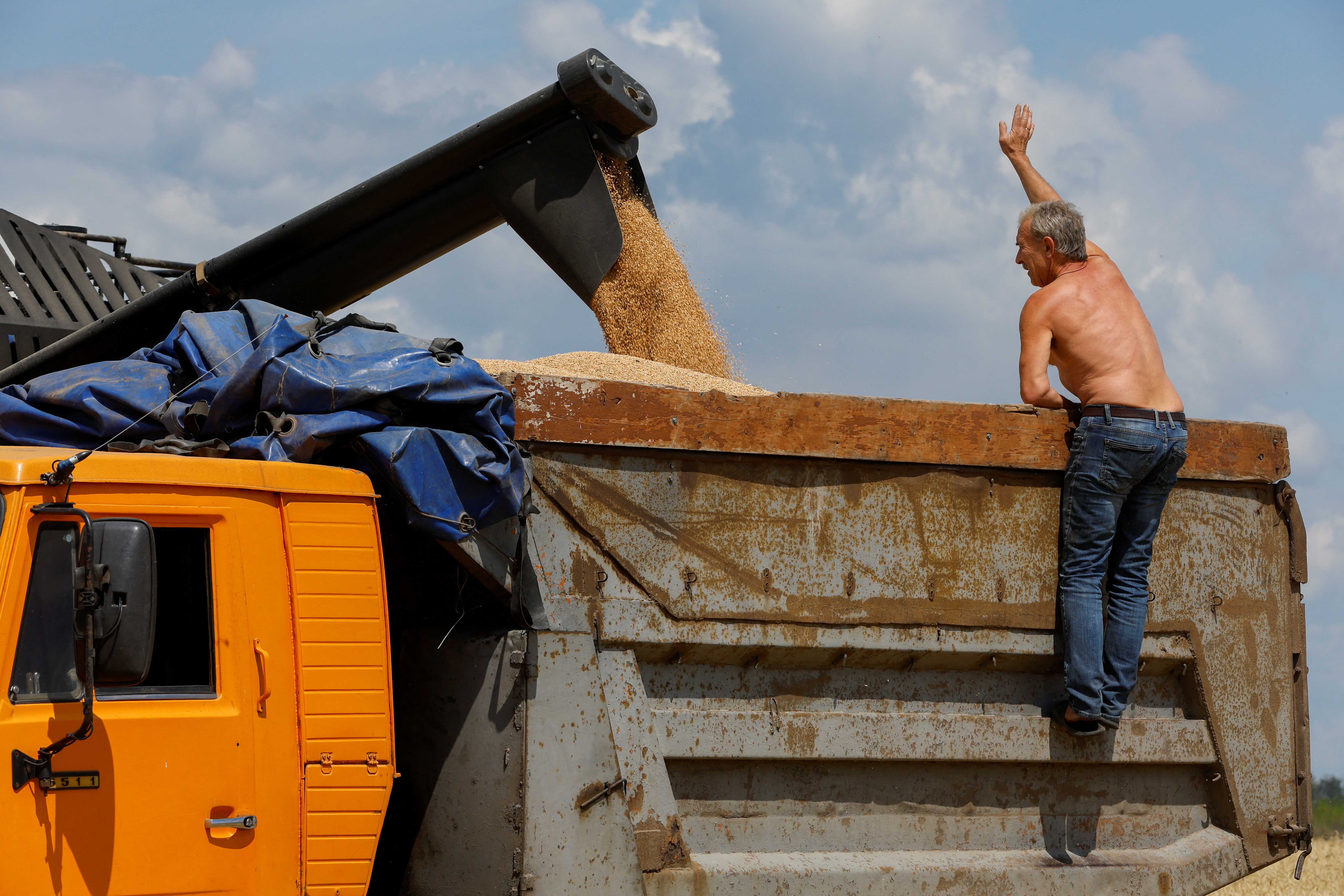Russia declares crop emergency but says it will meet export commitments

By Olga Popova and Mark Trevelyan
MOSCOW (Reuters) -Russia said on Friday it was declaring a federal emergency in 10 regions because of damage to crops from May frosts, a measure that will help farmers with extra funds but which officials said should not derail export obligations.
The move came as no surprise after Agriculture Minister Oksana Lut said earlier this week that she hoped it would be introduced, paving the way for insurance claims by farmers.
Deputy Agriculture Minister Andrei Razin said on Friday that the impact of weather problems on farm output would be minimised and that Moscow would fulfil all of its export commitments, the state TASS news agency reported.
“As of today, we have already replanted almost 800,000 hectares,” he said. “All our obligations from the point of view of both domestic consumption and external export obligations will definitely be fulfilled.”
The sharp May frosts in Russia’s breadbasket regions have caused agricultural consultancies IKAR and Sovecon to downgrade their crop forecasts for this year’s wheat crop, however.
IKAR has cut its forecast to 81.5 million metric tons, a drop of 12% since mid-March. Last year’s harvest was around 93 million tons.
Speaking this week before the emergency was introduced, IKAR head Dmitry Rylko said it was “a question of speeding up the procedure for farmers to receive compensation, as well as knocking out additional money for them”.
Andrey Sizov of the Sovecon consultancy said rapidly deteriorating prospects for the crop, combined with rising domestic prices, meant the risk of additional restrictions on grain exports had, however, increased.
“I don’t think the Ministry of Agriculture itself wants such restrictions,” he added. Russia is the world’s biggest wheat exporter.
Sovecon this week cut its wheat crop forecast to 80.7 million metric tons (mmt). Back in March, it was projecting a crop of 94 million mmt.
“With the current hot and dry conditions in the winter wheat regions and excessive rain in Siberia, we are not sure that we won’t go lower than 80 mmt,” Sizov said.
Russia banned grain exports in 2010 after drought and wildfires devastated its harvest, leading to a surge in global prices. The wheat crop that year, however, totalled just 41.5 million tons, according to the U.S. Department of Agriculture, around half the projected total for this season.
The state of emergency announced on Friday applies to 10 regions including Luhansk, a part of eastern Ukraine that Russia claimed as its own territory in 2022, a few months into the war.
(Reporting by Olga Popova in Moscow and Mark Trevelyan in London; editing by David Evans)








